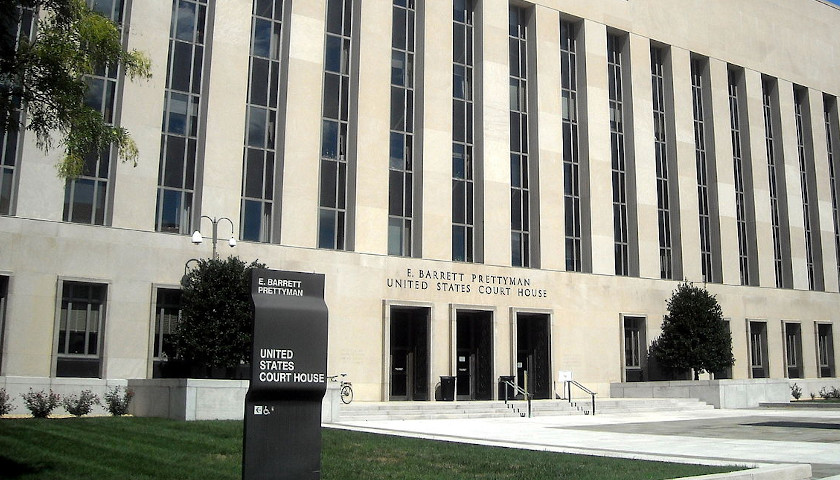by Stewart Baker and Michael Ellis
Republicans have had a crash course since 2016 in the ways the power of the intelligence community can be abused. To take a few examples, four consecutive judges operating under the Foreign Intelligence Surveillance Act approved wiretaps of a Trump adviser, Carter Page, relying without question on the partisan fictions of the Steele dossier. Michael Flynn was ousted after he was the target of an unprecedented leak of another FISA intercept. And 51 former intelligence officers intervened in the 2020 election to dismiss without evidence the Hunter Biden laptop contents as likely Russian disinformation.
Now a major intelligence program – section 702 of FISA – is expiring by the end of the year, and Republicans in Congress, who have long supplied a voting majority for renewal of the program, are asking how to square that support with the lessons of the last seven years.
That debate is getting personal. Two Republican lobbyists, Bob Goodlatte and Matthew Silver, recently attacked us by name for making “absurd” and “clumsy” arguments against the path they think conservatives should take. In their view, Republicans should join a coalition with the ACLU, the Brennan Center, Demand Progress, and the National Association of Criminal Defense Lawyers to require a court order based on probable cause before FBI agents can search data already collected lawfully under section 702 for information about an American.
Goodlatte and Silver criticize us for pointing out that requiring a warrant for such searches is a long-time goal of intelligence critics on the left that would do little or nothing to address the abuses of the last several years. They argue that many conservative Republicans, from Rep. Andy Biggs to Sen. Mike Lee, have criticized FBI intelligence abuses and called for reform. True enough. But so have we, writing often about those abuses and the need for reform. The difference is that we haven’t supported a warrant requirement, for several reasons:
- Warrants wouldn’t address the partisan abuses we’ve seen in recent years.
- A warrant requirement defies decades of law and practice.
- Imposing one would cripple national security in a way reminiscent of our failures before 9/11.
The idea that getting a warrant from the FISA court would protect against partisan abuse of surveillance is refuted by experience. Four FISA judges reviewed the Justice Department’s applications to wiretap Carter Page, and all four approved those applications, even though by the time of the last two approvals, the evidence was so flimsy that the Justice Department itself ultimately repudiated them. Why, after exhibiting such casual concern for the rights of an American citizen, should we treat a warrant approved by the FISA court as a serious bulwark against abuse?
Goodlatte and Silver say that not getting a warrant to search the 702 data for information about Americans “effectively discards the Fourth Amendment.” But, as court after court has held, the Fourth Amendment doesn’t require the government to get a warrant before it reviews information it has already collected lawfully. Such “warrantless” searches occur every day in ordinary criminal cases, when police review information obtained from one suspect (with or without a court order) to find evidence relevant to a different investigation.
And the section 702 data that the FBI is allowed to search today was gathered lawfully; it consists of communications to and from fewer than 8,000 foreign targets who are tied to an existing FBI investigation. Many of those are counterterrorism investigations, where it’s critical that the FBI know as soon as possible if an American is in direct communication with a foreign terrorist. Requiring a full probable cause workup and a cumbersome court process before that information is available to investigators would keep them in the dark if all they have is a tip about possible terror ties; that is a recipe for delay and failure of the kind we saw in the run-up to 9/11.
Almost worse, the warrant requirement doesn’t fit at all with one of the most common uses of the database – FBI searches to identify American victims of ransomware, cyberespionage, and the kind of foreign government assassination and coercion attempts we’ve seen from China and Iran. Speaking for ourselves, we won’t thank any Republicans who vote to make it harder for the FBI to notify us if we’re on the receiving end of such threats.
Finally, by joining a coalition dominated by progressives, Goodlatte and Silver would trade away measures that could directly address the abuses of the last several years. Those on the left aren’t likely to support a ban on government monitoring of domestic “disinformation,” more accountability for partisan abusers of FISA like the Carter Page scandal and the Flynn transcript leaker, a repeal of the prong of FISA used to target Page, or measures to stop former intelligence officials from trading on their credentials for partisan purposes. Unlike the Goodlatte-Silver proposals, those far-reaching reforms won’t cripple national security, but they will make a real difference – and will only become law if conservatives insist on them as the price for renewing 702. That’s a goal that is within reach this year. Conservatives shouldn’t throw it away in service to priorities set by left-wing activists.
– – –
Stewart Baker, a Washington lawyer, has held multiple national security positions in government, including general counsel of the National Security Agency in 1992-94. Michael Ellis has served in senior positions in Congress, the White House, and the Intelligence Community, including as Senior Director for Intelligence Programs on the National Security Council staff.
Photo “E. Barrett Prettyman Federal Courthouse” by AgnosticPreachersKid. CC BY-SA 3.0.




